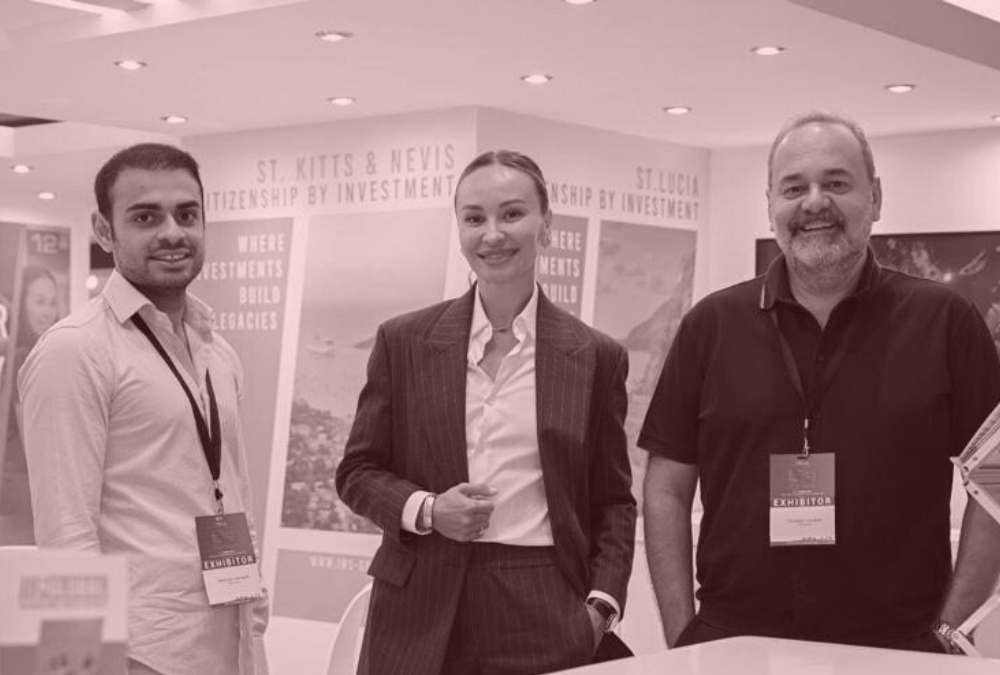This is part three of a broader investigation. Click to read: part one | explainer piece | part two
IWS Group, a company that sells golden passports and is partially owned by disgraced former economy minister Chris Cardona, heavily promoted recruitment services for foreign workers who would then go on to be employed in industries dependent on cheap labour, this website can reveal.
Shortly after the first part of this ongoing investigation into Cardona’s affairs post-politics was published, IWS Group immediately took down its website, in spite of the fact that the company was, as recently as this month, selling its services across the globe.
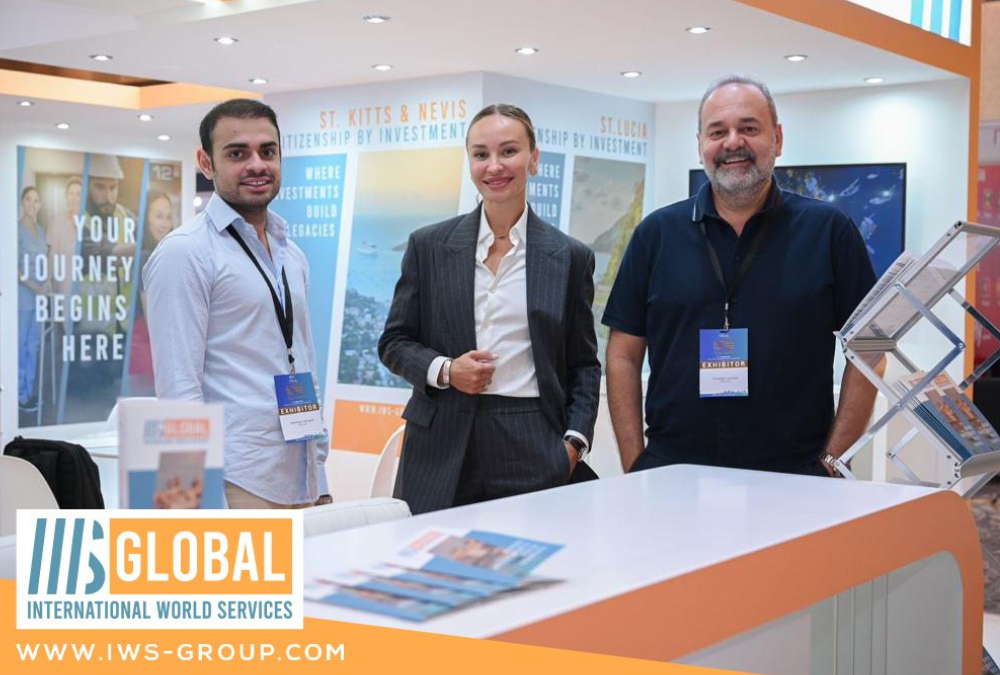
A photo of IWS Group at their stand in Dubai’s citizenship expo in October of this year. From left to right: IWS’ founder and CEO Matthias Vidergold/Saliba, IWS’ regional manager in the Balkans Agnesa Ordanoska, and disgraced former economy minister and co-shareholder Chris Cardona.
However, in spite of the company’s efforts to cover up their tracks, a trail of information on their social media platforms remained.
Specifically, one of the company’s regional managers was a particularly prolific poster – Agnesa Ordanoska, IWS’ manager in the Balkans region. Both her Instagram and her Facebook profile, along with the company’s profiles on the same social media platforms, contain multiple references to a business model that relies on sourcing workers from countries like Nepal, India, Pakistan, the Philippines, and Bangladesh to help prospective employers “say goodbye to employment headaches and hello to success”.
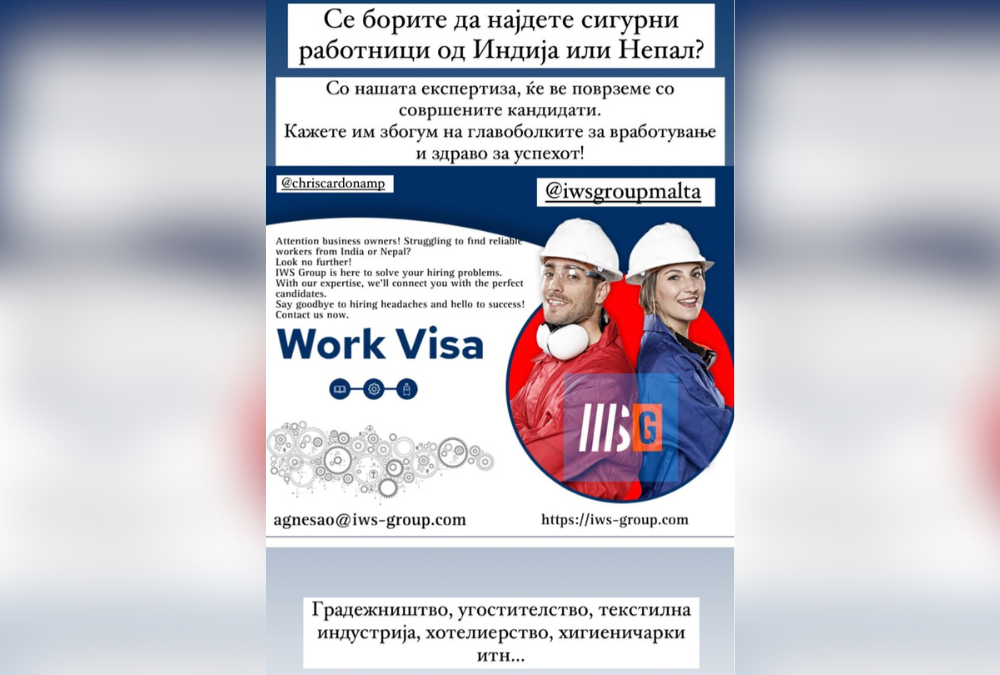
Translation of text in Macedonian reads as follows:
“Struggling to find reliable workers from India or Nepal? With our expertise, we will connect you with the perfect candidates. Say goodbye to employment headaches and hello to success!” (bottom text) “Construction, catering, textile industry, hotel industry, hygienists etc…”
In September, Ordanoska posted at least two Facebook adverts for the same kind of recruitment service. Both adverts promote the provision of foreign workers from impoverished, non-EU countries while talking up the company’s ability to facilitate recruitment services for companies who are struggling to find employees.
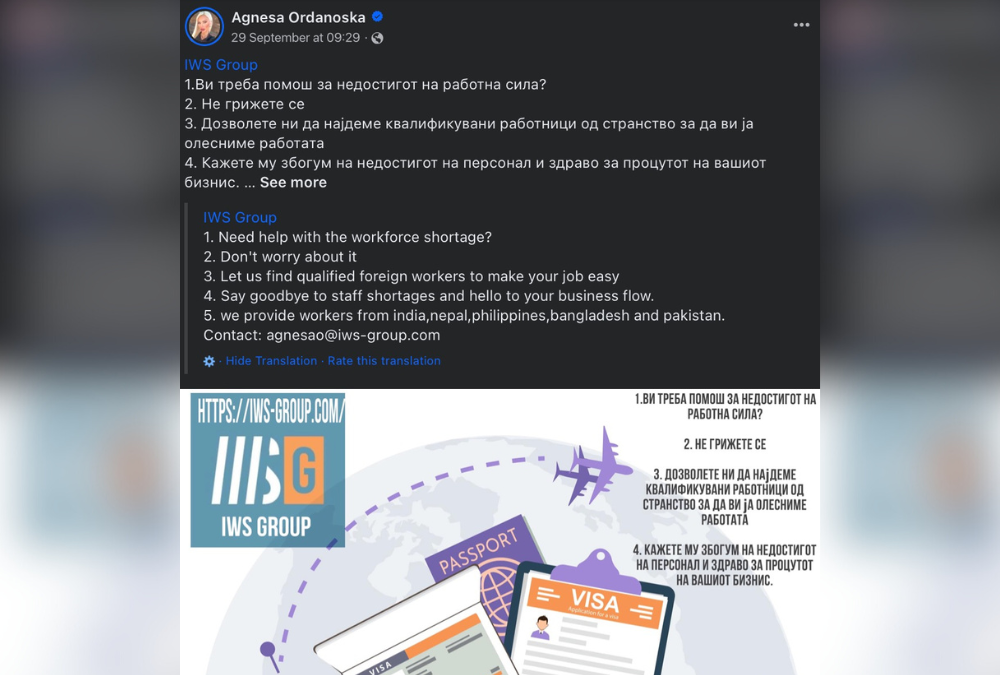
Text in image attached with post translates as follows:
“1. Do you need help for the labour shortage?
2. Don’t worry.
3. Let us find qualified workers from abroad to make your work easier.
4. Say goodbye to understaffing and hello to your business prosperity.”
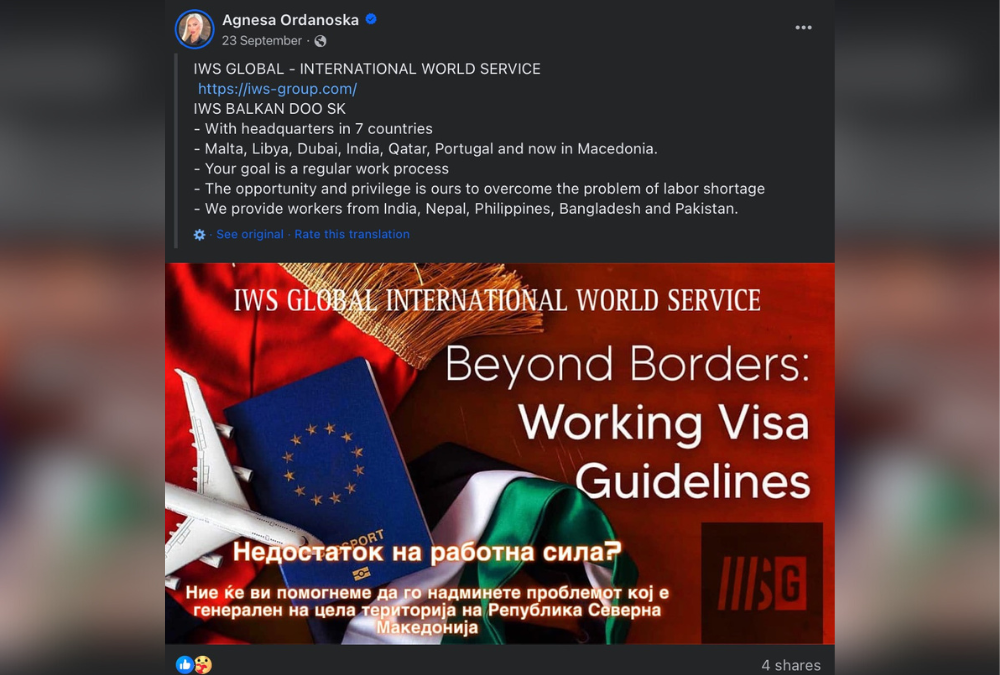
Text in image attached to post reads as follows: “Lack of labour? We will help you overcome the problem that is general in the entire territory of the Republic of North Macedonia.”
In another post obtained from Ordanoska’s Instagram profile, uploaded on 12 October, the advert is slightly more specific but more or less repeats the same pitch that is displayed in the other adverts reported in this investigation.

The text in the image attached with the post reads as follows:
“Are you facing a shortage of qualified construction workers?”
“Let us handle the recruitment and provide you with top workers. Say goodbye to construction delays and hello to smooth progress.”
IWS, which is a company that has offices in Macedonia, the UAE, and Malta, did not have any discernible turnover in their most recently filed accounts on the Malta Business Registry (MBR). The most recent annual accounts one can find on the MBR are for the year ending 2020, and they showed a negligible amount of financial activity. Since Cardona formally took over half of the shares of the company this year, it is not known how much money the company has made since the disgraced former economy minister joined its ranks.
Their 2020 accounts suggests that the company, which was registered in 2014, did not seem to be generating any kind of notable economic activity for at least six years. The company only became fully active in the years that followed Cardona’s disgraceful exit from politics, raising questions as to why its founder and CEO, who had changed his surname from Saliba to Vidergold, left the company seemingly idle for six years only to then suddenly show up on the scene as a fully-fledged global enterprise within the span of the last three years.
Malta’s addiction to cheap labour
One of the policy cornerstones of the Labour Party’s government has been its reliance on cheap labour to maximise private industries’ profits and maintain several underpaying sectors like catering, hospitality, and construction afloat while simultaneously adopting a hardline stance with refugees who come to Malta to find better employment opportunities.
According to data compiled by the National Statistics Office (NSO), foreign workers made up 36% of the Maltese workforce by 2022. Data from JobsPlus further shows that the annual flow of foreign workers (which would include workers who stay in the country temporarily only to then leave a few months down the line) increased from 15,000 per year in 2012 to 97,000 last year.
The brains behind the boom in foreign workers was former JobsPlus CEO now turned finance minister Clyde Caruana. As tensions across the country surged due to a predominantly xenophobic attitude towards foreigners in general combined with inadequate infrastructure and services that were unable to cope with the surge, Caruana eventually changed tack.
Just last week, when speaking at an event organised by the Times of Malta, Caruana admitted that the country cannot possibly afford to keep importing foreign labour. Business lobbies representing the sectors that lean on foreign workers have long been complaining of labour shortages, and insist that the country must rely on these employees.
While it is not yet known to what extent Cardona’s company sold its worker recruitment services for the local market, one cannot deny the fact that a former economy minister who had a direct say in what approach Malta takes to the importation of foreign workers is now actively profiting from that same dubious practice.
Several high-profile cases involving foreign workers in Malta – the most recent of which involved 40 foreign workers who were being paid so poorly that they had no choice but to live in one, cramped apartment in Sliema – laid bare the extent of the exploitation that is often endured by foreign workers coming to the country, who are generally dependent on their work permit to remain in the country and are therefore far more prone to abuse than a Maltese worker in the same context.
According to data that Caruana presented to Parliament earlier this month, around 20,000 non-EU nationals are working in Malta full-time on a minimum wage. It is widely known that the number of foreign workers in Malta is much higher than estimated since it is a fairly common practice to ‘hire’ workers who do not have a work permit and are therefore forced to work off the books.

